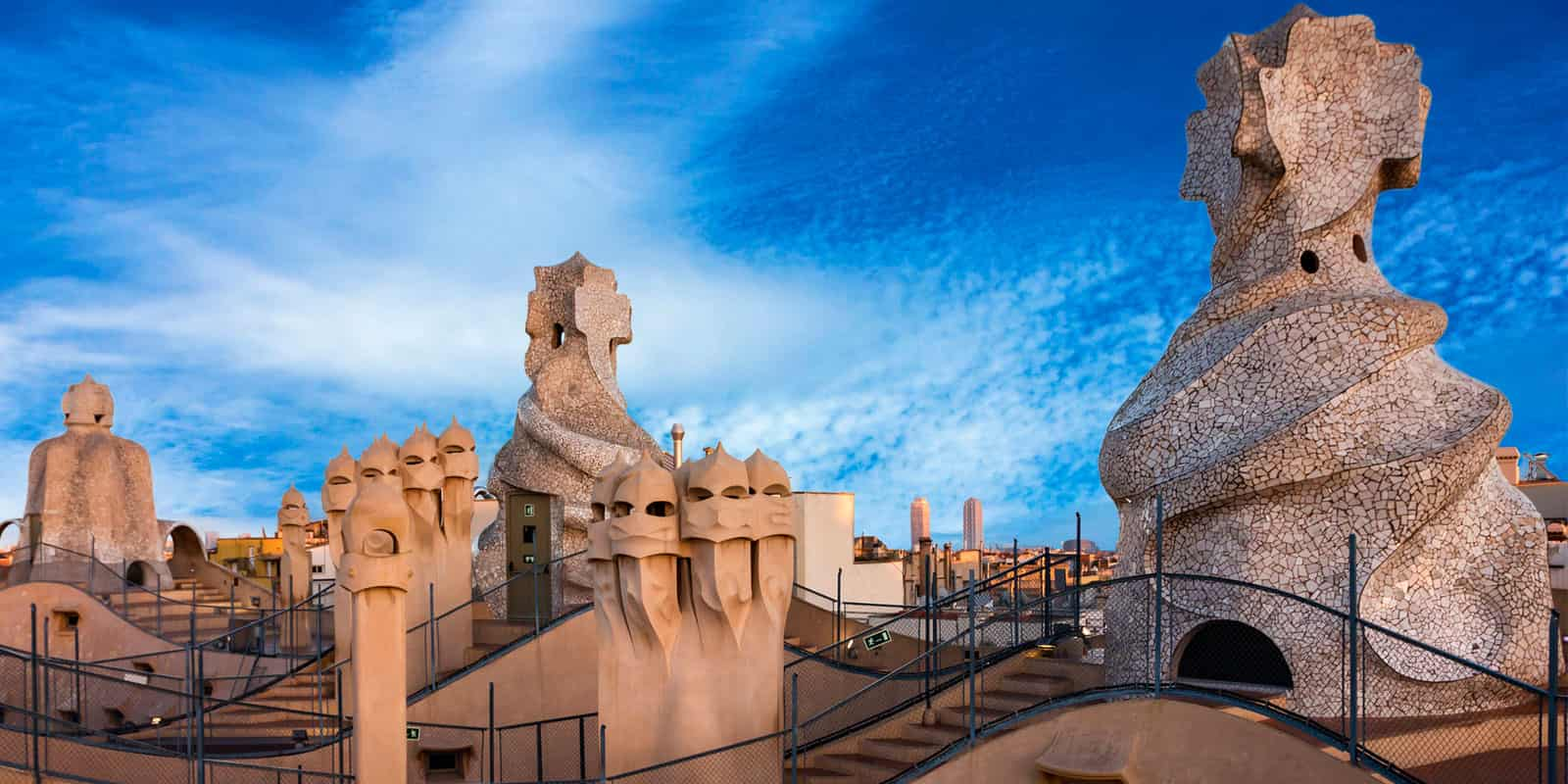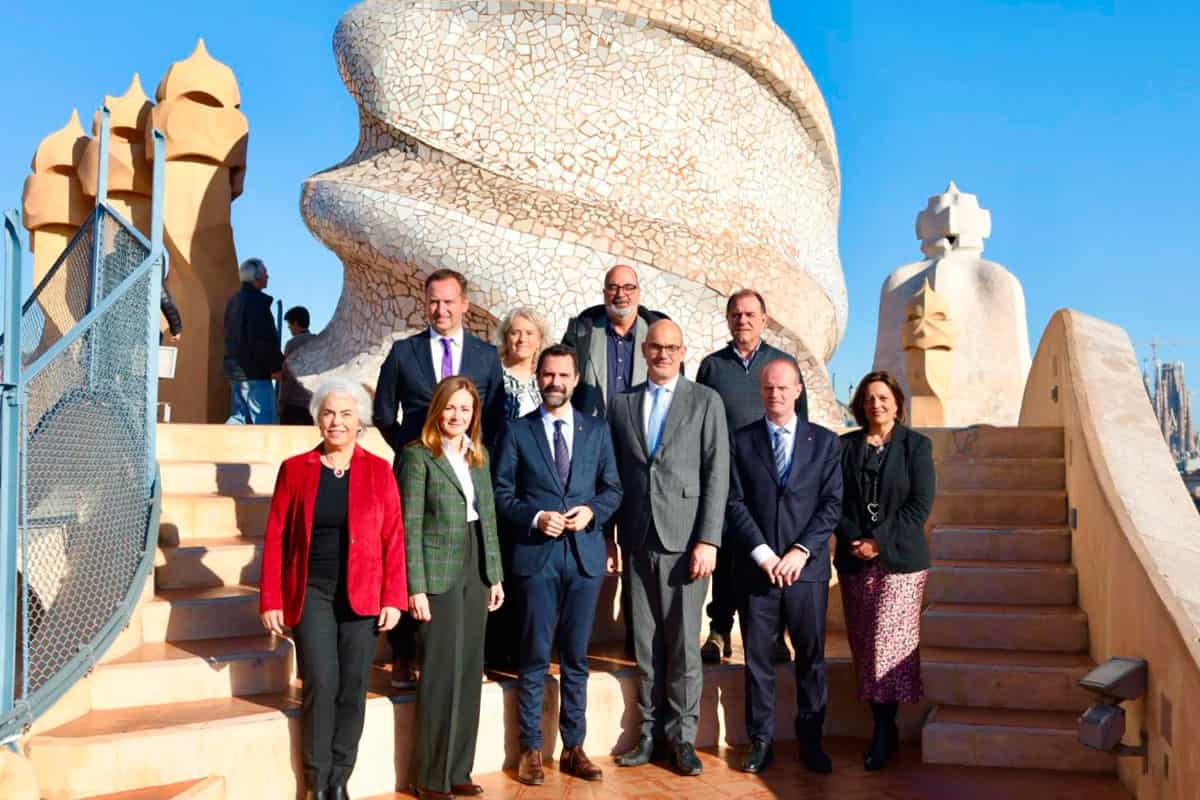“Catalonia is a global reference in cluster policy. This policy can serve as a learning experience for other regions”
Christian Ketels, Harvard Business School researcher

Catalan Economy
18 Dec 2023
Harvard University has published a case study that shows how clusters have had a "decisive" positive impact on Catalan companies, and that Catalonia is one of the most developed regions in Europe in this area.
Students from Harvard Business School will study the case of cluster policy in Catalonia and the impact it has had on the competitiveness of Catalan companies. This was announced this Monday by the Minister of Business and Labour, Roger Torrent, and Harvard Business School researcher Christian Ketels during a meeting with the presidents of Catalan clusters and ecosystem representatives held in La Pedrera-Casa Milà in Barcelona. The event was also attended by the Secretary of Business and Competitiveness and CEO of ACCIÓ-Catalonia Trade & Investment, Albert Castellanos.
The students who will study the Catalan case Three Decades of Cluster Policy in Catalonia: What's Next are specialized in Microeconomics and Business Competitiveness from the MBA and Master in Public Administration (MPA) courses, in addition to students from these courses and students from a hundred international universities that collaborate with Harvard Business School, who will also have access to the study.
The Minister of Enterprise and Labour, Roger Torrent, assured during the meeting that "the cluster policy is a successful activity and is very important for the Government and for the competitiveness of the Catalan economy. In the last three years, 400 new companies have joined the clusters, gaining muscle for the future". Torrent stressed that "companies increasingly have a business culture of more teamwork, of looking at their surroundings and making a generous effort to work together to find more efficient solutions for everyone". In this sense, the Minister of Enterprise and Employment said that "we are attentive to the dynamism and plurality of the Catalan business network, which is why we are open to incorporating new clusters as new business sectors consolidate in the future".

“Catalonia is a global reference in cluster policy. This policy can serve as a learning experience for other regions”
Christian Ketels, Harvard Business School researcher

On the other hand, the Harvard Business School expert stressed that "Catalonia is a global reference in cluster policy. Many regions of the world can learn from how public policies and cluster structures have adapted to economic and global changes over the last thirty years". Ketels, a world reference in the field of business competitiveness, explained that "today, Catalonia has a cluster structure that operates from the private sector, while the government, through ACCIÓ, supports them with a global vision of which sectors best characterize the Catalan economic fabric. Therefore, this policy is a clear and effective example that can serve as a learning experience for other regions".
The case study analyzes the evolution of the cluster policy in Catalonia, promoted since 1992 by ACCIÓ-Catalonia Trade & Investment, the Business Competitiveness Agency of the Ministry of Business and Labour. It highlights that "few initiatives have been maintained over such a long period" and the "indications that this success in keeping this program active reflects the value it brings to Catalonia and its economy".
In this sense, it emphasizes that the directors confirm how their participation in the cluster activities has helped their companies "in a decisive way" and that they have better indicators such as turnover, job creation, innovation, or internationalization than companies that do not belong to these organizations.
The case also recalls the initiatives promoted by ACCIÓ-Catalonia Trade & Investment over the last decades to facilitate strategic change for Catalan companies that are part of clusters and international prospecting missions for clusters to learn about best practices in other regions. It also recognizes that Catalonia is a pioneer in shared value to contribute to a new, more conscious capitalism and the interconnection of cluster policy with other competitiveness policies.
Similarly, regarding the environment, the case highlights that the organization TCI Network - the global network of professionals and organizations active in cluster-based economic development - is located in Barcelona, a city "recognized as a leading European and world metropolitan hub". Indeed, it highlights Catalonia's "industrial tradition", the fact that it has been awarded the status of innovator by the European Commission in the European Innovation Ranking, as well as recent investments by multinationals such as Microsoft, with the opening of an AI-focused R&D center in Barcelona, or the R&D hub of the pharmaceutical company AstraZeneca.
Harvard Business School case also highlights Catalonia's activity in international networks related to clusters and projects funded by the European Union. It highlights that, with 41 clusters registered in the European Cluster Collaboration Platform, Catalonia is the region with more organizations than Lithuania, Bavaria (Germany), and Baden-Württemberg (Germany), and that Catalonia is also the European region with the highest number of clusters that have received funding from the European Union's Euro clusters program.
A cluster is a group of companies (companies, multinationals, and startups) and environment actors (universities and technology centers) of a given economic area that share common challenges. It is an instrument that allows companies to improve their competitiveness by developing joint transformative projects related to the strategic challenges of the sector.
In Catalonia, the cluster policy began more than 30 years ago. The Catalonia Clusters program, promoted by the Government of Catalonia through ACCIÓ-Catalonia Trade & Investment, currently includes 27 Catalan clusters that bring together more than 2,700 companies and associated agents with a turnover of more than 70,000 million euros.
By type, the cluster members represent a diverse set of actors, including SMEs (68%), large companies (10%), research centers, universities, and knowledge providers (9%), startups (8%), and environmental agents (5%). Through this initiative, we aim to help them focus their strategy, co-finance strategic projects, organize trips to reference ecosystems for international benchmarking and launch collaborative projects between Catalan clusters or with international entities, among others.

Catalonia Trade & Investment assists foreign companies in starting a business in Barcelona-Catalonia.
We connect international companies to key partners to help them set up, succeed and grow in Catalonia.

Access to all sources of available talent for international companies in Barcelona-Catalonia.
05 Feb 2026
Catalonia assumes the presidency of the ECRN, the European Union’s leading chemical industry network
29 Jan 2026
Barcelona gets ready for ISE 2026: insights from Mike Blackman
28 Jan 2026
Barcelona strengthens position as Europe's AI Hub with 129 million euros Supercomputer expansion
26 Jan 2026
The number of video game startups in Catalonia grows 35% over the past five years